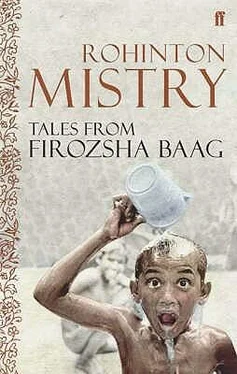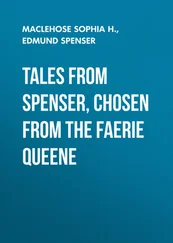Rohinton Mistry - Tales From Firozsha Baag
Здесь есть возможность читать онлайн «Rohinton Mistry - Tales From Firozsha Baag» весь текст электронной книги совершенно бесплатно (целиком полную версию без сокращений). В некоторых случаях можно слушать аудио, скачать через торрент в формате fb2 и присутствует краткое содержание. Год выпуска: 2006, Издательство: Faber & Faber, Жанр: Современная проза, на английском языке. Описание произведения, (предисловие) а так же отзывы посетителей доступны на портале библиотеки ЛибКат.
- Название:Tales From Firozsha Baag
- Автор:
- Издательство:Faber & Faber
- Жанр:
- Год:2006
- ISBN:нет данных
- Рейтинг книги:3 / 5. Голосов: 1
-
Избранное:Добавить в избранное
- Отзывы:
-
Ваша оценка:
- 60
- 1
- 2
- 3
- 4
- 5
Tales From Firozsha Baag: краткое содержание, описание и аннотация
Предлагаем к чтению аннотацию, описание, краткое содержание или предисловие (зависит от того, что написал сам автор книги «Tales From Firozsha Baag»). Если вы не нашли необходимую информацию о книге — напишите в комментариях, мы постараемся отыскать её.
Tales From Firozsha Baag — читать онлайн бесплатно полную книгу (весь текст) целиком
Ниже представлен текст книги, разбитый по страницам. Система сохранения места последней прочитанной страницы, позволяет с удобством читать онлайн бесплатно книгу «Tales From Firozsha Baag», без необходимости каждый раз заново искать на чём Вы остановились. Поставьте закладку, и сможете в любой момент перейти на страницу, на которой закончили чтение.
Интервал:
Закладка:
Even Daddy laughed, but he hurried us along as we lingered there to follow the ensuing dialogue. We picked our way through sleeping streets. The pavement dwellers would stretch, and look for a place to relieve themselves. Then they would fold up their cardboard pieces and roll away their plastics before the street sweepers arrived and the traffic got heavy. Sometimes, they would start a small fire if they had something to cook for breakfast, or else try to beg from people who came to the Irani restaurant for their morning chat and bun. Occasionally, Mummy would wrap up leftovers from the night before for Daddy and me to distribute to them along the way.
It had been such a long time since we last played cricket. Flying kites had also become a thing of the past. One by one, the things I held dear were leaving my life, I thought gloomily. And Francis. What about poor Francis? Where was he now, I wondered. I wished he was still working in the Baag. That awful thrashing he got in Tar Gully was the fault of Najamai and Tehmina, those stupid old women. And Najamai saying he stole eighty rupees was nonsense, in my opinion; the absent-minded cow must have forgotten where she left the money.
I put down the tweezers and reached for the comics. Daddy looked up. “Don’t stop now, it should be perfect this week. There will be an interview or something.”
Avoiding his eye, I said stolidly, “I’m going to read the comics,” and walked out to the compound steps. When I turned at the doorway Daddy was still looking at me. His face was like Mamaiji’s when the thread broke and slipped through her fingers and the spindle fell to the floor. But I kept walking, it was a matter of pride. You always did what you said you were going to do.
The comics did not take long. It used to be more fun when Daddy and I had a race to the door to grab the Times, and pretended to fight over who would read the comics first. I thought of the lines on Daddy’s forehead, visible so clearly from my coign of vantage with the tweezers. His thinning hair barely gave off a dull lustre with its day-old pomade, and the Sunday morning stubble on his chin was flecked with grey and white.
Something — remorse, maybe just pity — stirred inside, but I quashed it without finding out. All my friends had fathers whose hair was greying. Surely they did not spend Sunday mornings doing what I did, or they would have said something. They were not like me, there was nothing that was too private and personal for them. They would talk about anything. Especially Pesi. He used to describe for us how his father passed gas, enhancing the narrative with authentic sound effects. Now he was in boarding-school. His father was dead.
From our C Block stone steps I could observe the entire length of the compound, up to A Block at the far end. Dr. Sidhwa’s black Fiat turned in at the gate and trundled laboriously over the rough-hewn flagstones of Firozsha Baag. He waved as he went past. He looked so much like Pesi’s father. He had the same crow’s-feet at the corners of his eyes that Dr. Mody used to have, and even their old cars seemed identical, except that Dr. Mody healed animals and Dr. Sidhwa, humans. Most of us had been treated by him at one time or another. His house and dispensary were within walking distance of Firozsha Baag, even a sick person’s walking distance; he was a steadfast Parsi, seen often at fire-temples; and he always drove over for his house-calls. What more could we want in a doctor?
The car stopped at the far end of the compound. Dr. Sidhwa heaved out, he was a portly man, and reached in for his bag. It must be an emergency in A Block, I decided, for someone to call him on Sunday. He slammed the door, then opened and slammed it again, harder now. The impact rocked the old car a little, but the door shut properly this time. Viraf emerged from the steps of A Block. I waved to him to let him know I was waiting.
Viraf was my best friend. Together we learned bicycling, on a rented contraption of bent spokes and patchwork tyres from Cecil Cycles of Tar Gully: Fifty Paise Per Hour. Daddy used to take us to practise at Chaupatty on the wide pavements by the beach. They were deserted in the early morning — pavement dwellers preferred the narrow side streets — except for pigeons gathering in anticipation of the pigeon-man, who arrived when the streets stirred to life. We took turns, and Daddy ran behind, holding the seat to keep us steady. Daddy also taught the two of us to play cricket. Mummy had been angry when he brought home the bat and ball, asking where the money had come from. His specialty on his own school team had been bowling, and he taught us the leg break and off break, and told us about the legendary Jasu Patel, born with a defective wrist which turned out to be perfect for spin bowling, and how Jasu had mastered the dreaded curl spin which was eventually feared by all the great international batsmen.
Cricket on Sunday mornings became a regular event for the boys in Firozsha Baag. Between us we almost had a complete kit; all that was missing was a pair of bails, and wicket-keeping gloves. Daddy took anyone who wanted to play to the Marine Drive maidaan , and organized us into teams, captaining one team himself. We went early, before the sun got too hot and the maidaan overcrowded. But then one Sunday, halfway through the game, Daddy said he was going to rest for a while. Sitting on the grass a little distance away, he seemed so much older than he did when he was batting, or bowling leg breaks. He watched us with a faraway expression on his face. Sadly, as if he had just realized something and wished he hadn’t.
There was no cricket at the maidaan after that day. Since we were not allowed to go alone, our games were now confined to the Firozsha Baag compound. Its flagstoned surface would not accept the points of stumps, and we chalked three white lines on the compound’s black stone wall. But the compound was too cramped for cricket. Besides, the uneven ground made the ball bounce and rear erratically. After a few shattered panes of glass and several complaints from neighbours, the games ceased.
I waved again to Viraf and gave our private signal, “OO ooo OO ooo,” which was like a yodel. He waved back, then took the doctor’s bag and accompanied him into A Block. His polite demeanor made me smile. That Viraf. Shrewd fellow, he knew the things to do to make grownups approve of him, and was always welcome at all the homes in Firozsha Baag. He would be back soon.
I waited for at least half an hour. I cracked all my fingers and knuckles, even the thumbs. Then I went to the other end of the compound. After sitting on the steps there for a few minutes, I got impatient and climbed upstairs to find out why Viraf was buttering up the doctor.
But Dr. Sidhwa was on his way down, carrying his black bag. I said, “Sahibji , doctor,” and he smiled at me as I raced up to the third floor. Viraf was standing at the balcony outside his flat. “What’s all the muskaa-paalis for the doctor?”
He turned away without answering. He looked upset but I did not ask what the matter was. Words to show concern were always beyond me. I spoke again, in that easygoing debonair style which all of us tried to perfect, right arm akimbo and head tilted ever so slightly, “Come on yaar , what are your plans for today?”
He shrugged his shoulders, and I persisted, “Half the morning’s over, man, don’t be such a cry-baby.”
“Fish off,” he said, but his voice shook. His eyes were red, and he rubbed one as if there was something in it. I stood quietly for a while, looking out over the balcony. His third-floor balcony was my favourite spot, you could see the road beyond Firozsha Baag, and sometimes, on a sunny day, even a corner of Chaupatty beach with the sun gleaming on the waves. From my ground floor veranda the compound’s black stone wall was all that was visible.
Читать дальшеИнтервал:
Закладка:
Похожие книги на «Tales From Firozsha Baag»
Представляем Вашему вниманию похожие книги на «Tales From Firozsha Baag» списком для выбора. Мы отобрали схожую по названию и смыслу литературу в надежде предоставить читателям больше вариантов отыскать новые, интересные, ещё непрочитанные произведения.
Обсуждение, отзывы о книге «Tales From Firozsha Baag» и просто собственные мнения читателей. Оставьте ваши комментарии, напишите, что Вы думаете о произведении, его смысле или главных героях. Укажите что конкретно понравилось, а что нет, и почему Вы так считаете.












